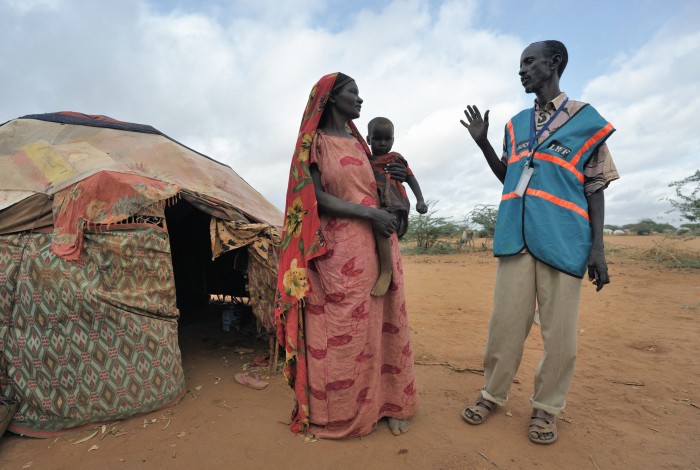PRESS RELEASE

20 May 2016 – Renewed action and investment in humanity is needed at the World Humanitarian Summit in Istanbul next week if we are to move from delivering aid to ending need, international faith-based humanitarian and development network ACT Alliance has said.
In the eleven new commitments ACT Alliance as a network has made towards the World Humanitarian Summit, it has focused on the core responsibilities highlighted in the UN Secretary General’s report to the Summit, in terms of meeting people’s essential needs and developing solutions with and for those impacted; investing in local capacities, and putting people at the centre of the response through local and national empowerment and building community resilience.
“Every day our members in the field doing humanitarian work are the witnesses of the hard realities that face people affected by natural disasters, diseases and epidemics, and conflicts,” said John Nduna, ACT Alliance General Secretary. “It is imperative that these communities are part of an inclusive system that empowers them. It is time to create a paradigm shift within the humanitarian system, and our expectation is that this first Summit should be a significant milestone toward real change in the sector, in which local and national organisations are more empowered to respond to their community’s needs.”
The 140 members of ACT Alliance who together work in over 100 countries around the world, work directly with communities facing emergency situations and respond to around 25 emergency situations around the world per year, including the recent earthquake in Ecuador and the ongoing conflict in Syria.
The alliance shares the majority of findings in the UN Secretary General’s report towards the World Humanitarian Summit. It has also endorsed the new Charter for Change initiative, which makes concrete commitments to shift power and resources to national and local actors.
As part of its work to support the World Humanitarian Summit process the alliance has committed to significantly increasing the proportion of ACT members’ humanitarian funding that goes directly to local and national members and their partners for humanitarian response and emergency preparedness by 2018.
“The commitments ACT has made in the run up to the WHS are about the changes we have identified as important and which we have been advocating for, both within and outside the WHS process,” said Reshma Adatia, ACT Alliance Global Humanitarian Coordinator. “We have used the WHS as an opportunity to commit to being reflective of a system that we want. Our commitments are about leading the way in how we respond to humanitarian situations.”
“Like other humanitarian workers we do our best to help people overcome emergency situations, and there are no miracle results,” said Nduna. “We must embrace the issues together at all levels and work in partnerships with equal recognition, from grassroot communities including faith based organisations to national and regional leaders and international bodies. This is the most effective way to help change the lives of people in crisis situations and uphold the norms that safeguard humanity.”
** For more information contact Estelle Marais, Head of Communications at Estelle.marais[at]actalliance.org tel: +41 79 358 3171.